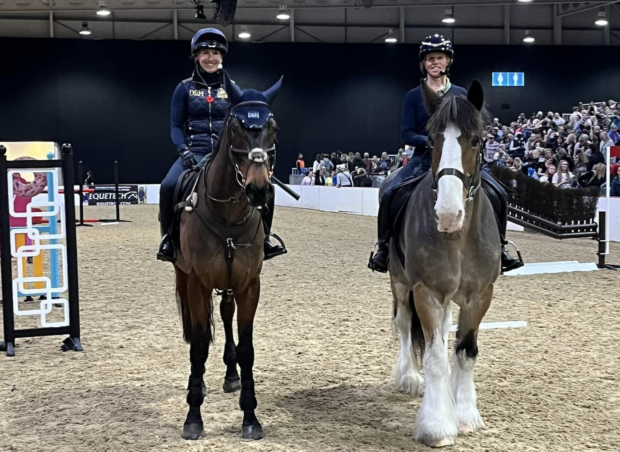When you have enjoyed going to lots of competitions over the years and getting the benefit of everybody else’s hard work organising the day, putting in the occasional stint as a fence judge at a one-day event or hunter trial is a great way to pay something back. For me it’s a good opportunity to have a catch up with a friend, enjoy a nice lunch and relax as I watch other people’s children risking their necks round the course. As an alternative to watching my own child while gripping the rails till my knuckles turn white.
Unlike most pastimes, with jump judging the more boring and uneventful the day the better. Nobody likes to see an ambulance on course.
Obviously most fence judges are horsey, although they may drag their-non horsey partners or friends along with them. They are either riders themselves, or parents of riders, so they tend to have a lot of empathy with that day’s competitors, because they have been there themselves in some shape or form. They certainly tend to have experienced the highs and lows of competition, and they really appreciate how demoralising an early departure from the cross-country course can be, with the corresponding walk of shame back to the lorry park.
I was reminded of this when I volunteered myself and a friend to fence judge at a local event this summer. We had a great day, but it did drag on a bit, with classes going on until well into the evening. So a late diversion of a kind that didn’t involve an ambulance came as a bit of a bonus. It was a Pony Club competition, but the last class of the day was open to all. Most of the riders in this class were adults, many on youngsters needing an unaffiliated outing. My friend and I really loved the exchange that took place on the walkie-talkies towards the end of proceedings.
Fence judge two: “Fence two to controller, I have competitor number 123*, she has been eliminated for three refusals at fence two but she really wants to continue. Can I let her go on?”
Quickly followed by:
Fence judge four: “Fence four to controller, I have competitor 122, she has also been eliminated but really wants to continue. Can she go on as well?”
Controller: “No, I am really sorry, they have been eliminated too early in the course to carry on, it’s not safe. Can you ask them both to leave the course and walk back please?”
(A silent cry of “spoilsport” from the rest of us).
Radio silence for several minutes then…
Fence judge two: “Really sorry, didn’t catch that, competitor 123 now safely over fence two and continuing on”.
Quickly followed by:
Fence judge four: “Really sorry, I didn’t catch that either, competitor 122 clear over fence four”.
Controller: “Well, fence six is a stopping fence. Can the judges at fence six please stop both these competitors and ask them to walk back?”
More radio silence, then:
Fence judge seven: “Competitor 122 nicely over fence seven and heading on”.
Fence judge: “Competitor 123 also clear over fence seven”.
Continued below…

Pony Mad Mum’s blog: why greys are the answer to keeping you sharp
Julie explains why owning a grey will keep
As both riders came over “our” fence 10, we gave them a little round of applause. And so it went on. Both riders competed without further incident, turning a disaster into a useful training opportunity, and with 19 sets of fence judges silently cheering them on. Who needs walkie talkies when you have the telepathy that connects a bunch of volunteers with a shared obsession?
*numbers have been changed to protect identities
JG



